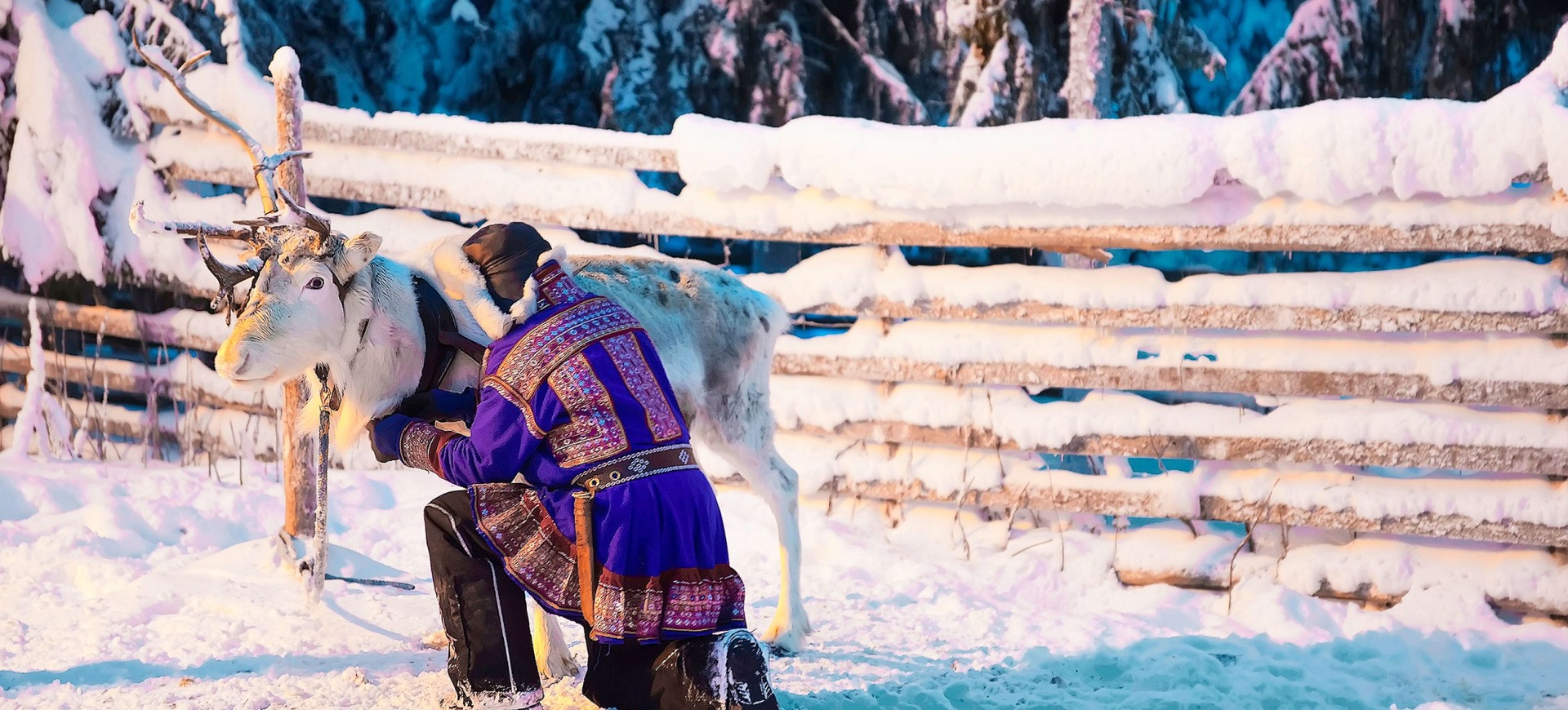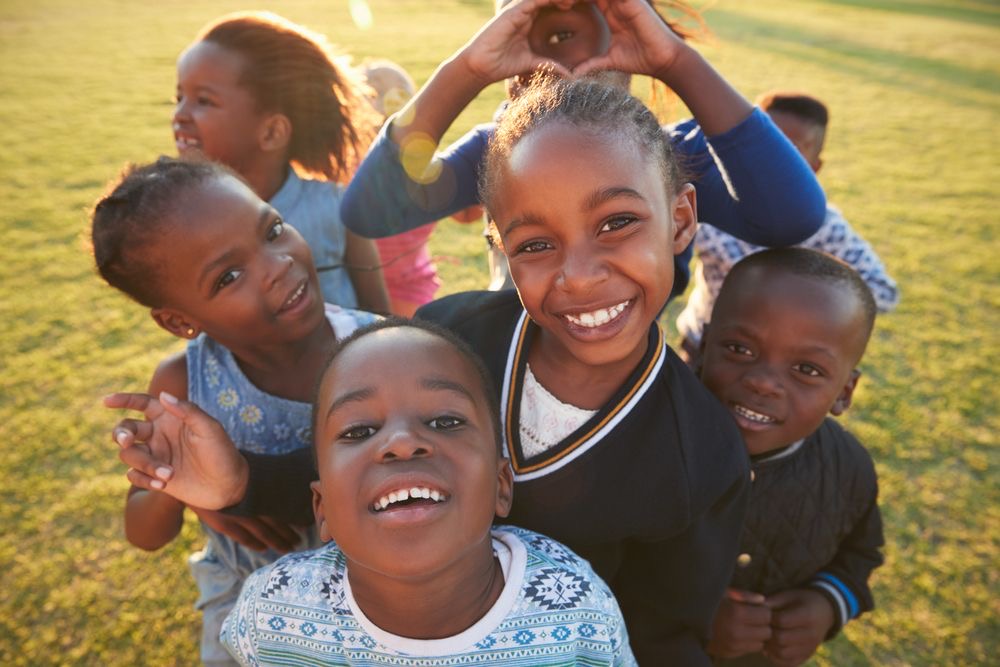When health rests on rights
Indigenous peoples worldwide are particularly vulnerable in regard to their health and well-being, but empowerment, access to traditional land and acknowledgement of Indigenous peoples’ rights are key elements to righting the balance
Achieving universal health coverage, a key target of the third Sustainable Development Goal to ensure healthy lives and promote universal well-being, cannot be accomplished by the health sector alone. Nor can other targets for the same goal, such as reducing premature mortality from non-communicable diseases by one-third through prevention and treatment or promoting mental health and well-being, or substantially reducing the number of deaths and illnesses from hazardous chemicals and polluted air, water and soil.
Sámi reindeer herders follow the herds through all seasons, migrating along the same routes as generations before, keeping the herds healthy, safe, fed and able to reproduce. This all depends on access to healthy and undisturbed pastureland. Industrial activities also demand access to land. Too often, they push away the reindeer husbandry to provide space for other activities. Towns expand, infrastructure is established, recreational cabins and trails are built, power lines are erected, and large spaces are expropriated for mines and hydroelectric power projects. The reindeer pastures are fragmented and diminished in line with this development. The result is that the Sámi, as an Indigenous people, have lost access to ancestral land.
This is the reality for the Sámi people, the Indigenous people in what can be considered a privileged part of the western world. There seems to be a false assumption that such activities can happen without harming Sámi livelihoods and culture. This situation is, however, too familiar for Indigenous peoples throughout the world. Indigenous trades, livelihoods and activities are expected to give way for what the dominant society defines as economic development. The dominant opinion seems to be that Indigenous peoples are obligated to give into whatever demand comes from whoever is interested in that particular piece of land or water, resulting in disputes over land access. These disputes foster hate speech and threats, which are currently a considerable part of the daily lives of Indigenous peoples, from Sápmi to the Amazon, to North America, to Africa, to the Pacific. The mental well-being of Indigenous peoples is affected. The constantly increasing pressure on our land and territories is seriously harming our peoples’ health. It threatens our existence.
Indigenous peoples, on the tundra, mountains, plains or river deltas, share a special relationship to their traditional land. Indigenous peoples depend on access to ancestral land for collective physical and spiritual survival as peoples, and hold diverse concepts of development, based on traditional values, visions, needs and priorities. For many Indigenous peoples, their livelihoods are based on primary trades, which implicates access to pastures to feed animals or to provide harvest. In the Sámi context, reindeer husbandry constitutes the foundation for the livelihood of many Sámi families, but is also essential to ensure the preservation and continuation of Indigenous knowledge, language, culture and existence.
Sustainable caretaking
To survive as a people, we are obliged to take care of our territories in sustainable ways, to ensure that future generations will benefit from the biodiversity providing food security and knowledge. This core value is shared by Indigenous peoples across the globe. We cannot allow any further harm to our land(s), or its exploitation, and this is why Indigenous peoples must participate in political processes. This is why our representatives must be acknowledged, and listened to, as partners in negotiations and discussions. This is why free, prior and informed consent must be an unavoidable principle for processes at all levels.
Human rights, including Indigenous peoples’ rights, are under pressure, as the world seeks quick fixes to global problems, while simultaneously chasing economic growth. The Saami Council is one among Indigenous peoples’ organisations and representative bodies addressing Indigenous peoples’ rights and promoting Indigenous voices from the community level to international platforms, such as the United Nations.
According to the UN, Indigenous peoples make up 370 million individuals worldwide, inhabiting around 70 countries. This indicates a wide range of political systems and policies regarding Indigenous peoples, most often developed by a dominant society, leaving the Indigenous peoples to depend on the will of the authorities to recognise and implement their rights.
Indigenous peoples face discrimination and racism in encounters with the public, including with healthcare services, whether they live in urban or rural areas. More or less successful attempts of assimilation cause disparities in health services. Indigenous peoples explain how lack of knowledge of their languages and culture makes them feel unsafe and unable to explain their situation properly, which leads to the possibility of them not receiving the necessary treatment or help.
Infrastructure in rural communities depends on priorities and investments from government or private organisations and is often related to industrial development. Infrastructure also includes healthcare services. Adequate healthcare service seems to be related to the number of inhabitants. This means smaller Indigenous communities might be deprived of access to health care, unless they are located close to an ‘infrastructure hub’. Access to affordable transportation is another hurdle for Indigenous peoples located far from healthcare institutions and providers. Getting to a medical appointment might require several days of travel and high costs for transportation, in addition to logistics and costs regarding potential travel companions.
Access to adequate healthcare service and essential needs, such as clean water and sanitation, is a core determinant of the physical health of Indigenous peoples. Access to traditional land is another, and requires authorities and private investors to prioritise implementing the UN Sustainable Development Goals and widening the horizon to include Indigenous peoples’ perspectives. Indigenous peoples have nothing left to give away, and so to secure our health and our existence, the empowerment and recognition of Indigenous peoples’ rights is the only recipe.












